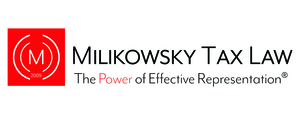SAN DIEGO, June 29, 2021 /PRNewswire/ -- If your company has a past due payroll tax balance, IRS will likely assess owners and company managers the TFRP (Trust Funds Recovery Penalty). The TFRP is assessed against individuals who have authority in a company to make financial decisions but did not pay federal payroll taxes. As part of IRS' payroll tax investigations, IRS is now summonsing bank records (i.e. bank statements, cancelled checks, deposits, etc.) from companies who owe back payroll taxes to identify which of those companies received Small Business Association (SBA) PPP funds.
Although IRS is not indicating why they are investigating companies with payroll tax balances to confirm if those companies received PPP funds, this may be an indicator that IRS wants to confirm how the PPP funds were used. Given that IRS and SBA are both federal agencies, the information discovered by IRS could be shared with SBA to determine if those funds were properly used.
SBA regulations prohibit companies from using PPP funds to pay for federal payroll taxes. SBA's regulations also restrict companies from using PPP funds for purposes such as: paying personal expenses; sharing funds between two related companies; paying employee compensation above $100,000; and payments to independent contractors.
Treasury Secretary Steven Mnuchin previously announced the federal government plans to audit all SBA PPP loans over $2 million. The audits and investigations relating to PPP loans were to be conducted by SBA, though these new bank record summonses from IRS may indicate cross-departmental collaboration to catch SBA loan cheats.
Depending on the circumstances, a PPP borrower's case may be referred to other government authorities for further civil or criminal investigation and possible prosecution. For example, since October 2020, the FBI has joined forces with SBA in conducting audits and investigations of wrongly claimed PPP loans. While loan application discrepancies are likely to be the most common offenses, these audits could bring to light other vulnerabilities for some businesses, such as misuse of federal PPP loan funds.
If you currently owe federal payroll taxes and received an SBA PPP loan, be prepared to have records to establish why your federal payroll taxes were not paid. You will also need to prepare sufficient records to show how your PPP loan funds were used.
Milikowsky Tax Law specializes in Government financial compliance including IRS, SBA, EDD Audits, IRS civil and criminal audits, IRS collection action and SBA Loan investigations.
Media Contact: Solin Zora [email protected]
SOURCE Milikowsky Tax Law

WANT YOUR COMPANY'S NEWS FEATURED ON PRNEWSWIRE.COM?
Newsrooms &
Influencers
Digital Media
Outlets
Journalists
Opted In



Share this article